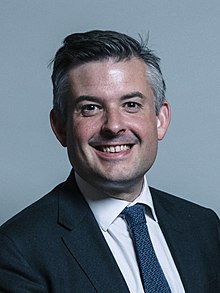Jonathan Ashworth – 2020 Speech on Covid-19
Below is the text of the speech made by Jonathan Ashworth, the Shadow Secretary of State for Health and Social Care, in the House of Commons on 12 May 2020.
I am grateful to you for that, Madam Deputy Speaker. We have heard many fine speeches over two days, and I hope Members will forgive me for not being able to mention them all. Throughout this outbreak, our paramount concern has been to save lives and minimise harm. That means suppressing the virus, not managing its spread. We are tracking towards one of the worst death tallies in the world, with more than 40,000 deaths, every one a tragedy, and this House cannot ignore the disproportionate impact the virus is having on black, Asian and minority ethnic communities—a thorough inquiry is a necessity. Today’s debate is not an inquest. No doubt there will have to be, in the future, a full and proper public inquiry, with access to an abundance of material and data. However, the Government must understand the concern, grief and anguish of our constituents who have lost loved ones or suffered great harm.
Ministers should expect searching questions. For example, did we enter lockdown too late? Ministers tell us they were following the science, but a SAGE paper from February on social distancing concedes:
“It is a political decision to consider whether it is preferable to enact stricter measures at first…or to start with fewer measures”.
As the Chair of the Health Committee, the right hon. Member for South West Surrey (Jeremy Hunt), said yesterday,
“Ministers have to take responsibility for their decisions.”—[Official Report, 11 May 2020; Vol. 676, c. 59.]
This virus exploits ambivalence. It demands clear public health messaging. Points about confused messaging have been made eloquently throughout the debate, but fundamentally the point is that nobody should be asked to go to work or send their children to school without it being safe to do so, and many do not believe that the Prime Minister’s instructions on Sunday evening yet meet that test. The Government must work with the TUC to ensure that strict safety measures are in place. No worker should be forced to put their health at risk. I hope the Minister can tell the House what the impact of asking people to go back to work will be on the R0.
The lockdown has been a powerful tool to bring down transmission, and easing lockdown too soon risks a dangerous second wave, with unacceptable further loss of life, so we support its continuation. But lockdown has a cost. It has an economic cost, certainly. It has a detrimental cost for children who spend months out of school; UNICEF has warned that children are not the face of this pandemic but risk being among its biggest victims. It also has a cost for health. We talk about protecting the NHS, but the extra surge capacity in the NHS has been built on the back of 2 million operations cancelled, cancer treatment delayed, unquantifiable mental health problems left to fester, and falling A&E attendance. There will indeed be long-term mortality and morbidity as a consequence of this lockdown. Ministers need to fund the NHS for that growing burden of unmet clinical need.
However, we cannot leave the lockdown safely unless thorough public health measures are in place. We need case finding, testing, tracing and isolation, which have been vital to the success of nations such as South Korea, Australia and New Zealand. Testing and surveillance are crucial to properly understanding prevalence and the estimates of the R0.
The former Business Secretary, the right hon. Member for Tunbridge Wells (Greg Clark), put it well yesterday when he said:
“A lack of testing has caused a lack of data, which has meant that too many of our policy decisions have been taken with a self-imposed blindfold.”—[Official Report, 11 May 2020; Vol. 676, c. 84.]
I agree. We were doing tracing in February, and then we abandoned it on 12 March. It took until 29 April for adverts to start appearing to recruit tracing call centre staff, a service that is to be handed over to the private sector. I do not believe that that tracing should be done by Serco. Instead, we must use the expertise in local public health services, our environmental health officers and our strength in primary care, and GPs should routinely be sent the test results of their patients.
Given the levels of significant asymptomatic and pre-symptomatic transmission, we need a proper targeted testing strategy too. All healthcare workers must be screened regularly. A study by Imperial suggested that that would reduce transmission in healthcare settings by up to a third. Because Office for National Statistics data show higher mortality in more deprived areas, with those in lower-paid occupations at greater risk, inequalities in accessing testing must be stamped out, and people must be provided with the means to self-isolate. That should include making use of hotel rooms and providing decent, more generous statutory sick pay if people cannot isolate at home.
We need to take other public health measures too. We support the quarantining of arrivals for 14 days at airports, but why did the Government not implement that earlier, and why is there still a lag in enforcing it? I am sure I am not the only Member struck by the curious irony that a party that promised to take back control of borders has conspicuously failed hitherto to enforce any border restrictions at a time of a devastating global pandemic.
We need to minimise outbreaks in vulnerable settings. Exercise Cygnus warned about the risks in care homes. The Government document published yesterday proclaimed that
“the Government will continue to bolster the UK’s social care sector”.
Today we learned of 8,312 tragic deaths in care homes. Why did Government official guidance until 12 March say:
“It remains very unlikely that people receiving care in a care home or the community will become infected”?
Why were patients discharged from hospital and transferred into the hands of social care without a test? And why still today, when we know that all staff and residents should be tested, are the Government promising to deliver that testing only by 6 June, a month away? This is not swift action. In many ways it looks like utter negligence.
Today is International Nurses Day and many will light a candle or shine a light from their windows at 8.30 pm to thank and pay tribute to every nurse. We will remember them and every health and care worker who has paid the ultimate sacrifice to this horrific disease. Our NHS staff and care staff, many of whom are exhausted and fearing burn-out, need more than Thursday evening clapping. They need our full support, safe staffing ratios, PPE and decent fair pay. They have been asked to give so much. They too often get so little in return. We hope that they are recognised for their true worth at the end of all this.



